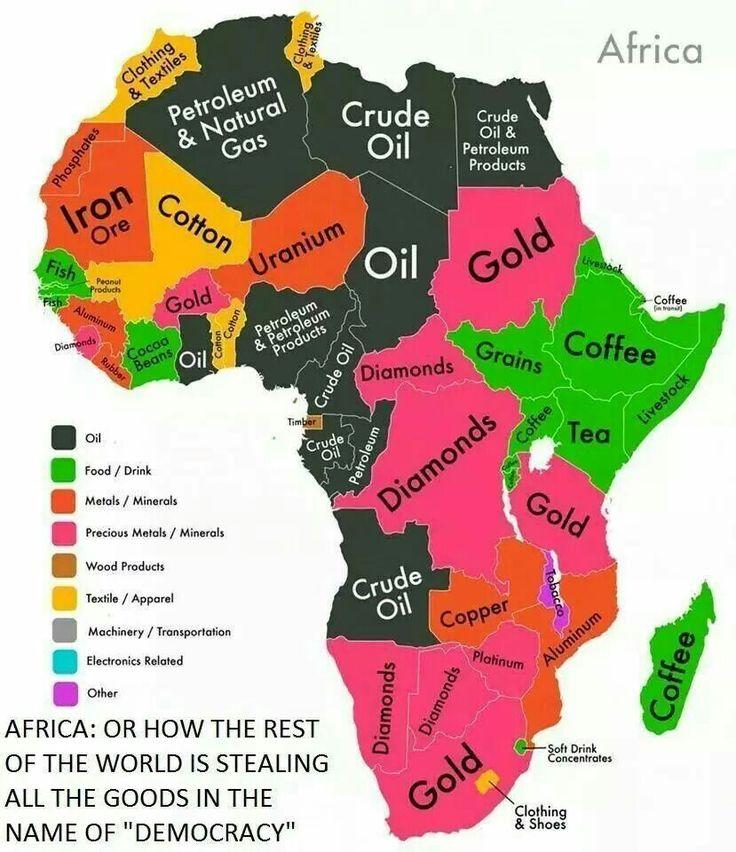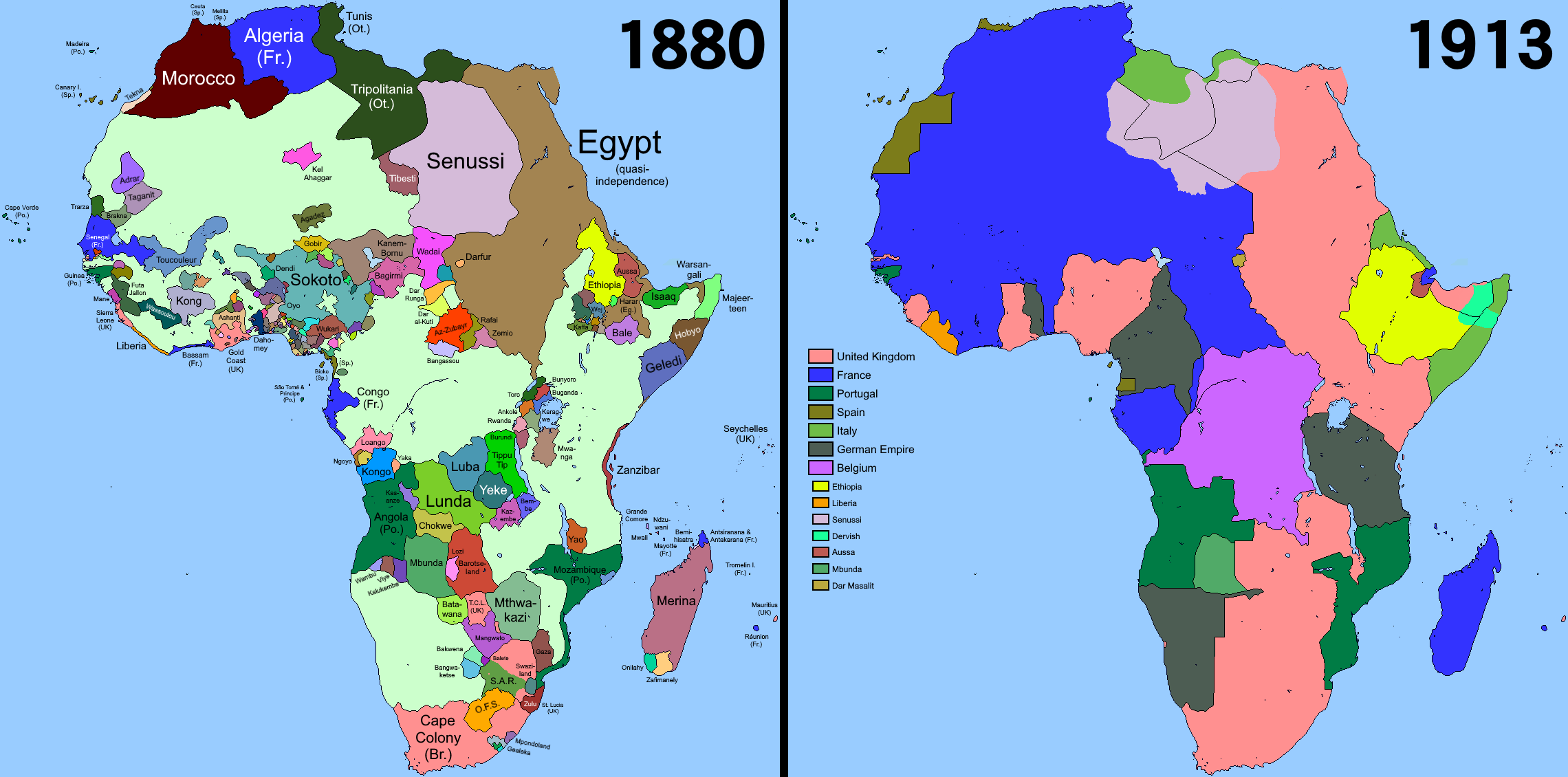The Scramble for Africa was a period of rapid colonization. European powers divided the continent among themselves.
This historic event reshaped Africa’s political landscape. In the late 19th century, European nations raced to conquer African lands. This scramble wasn’t just about territory. It was also about resources and power. Africa, rich in resources, became the target of intense competition.
Nations like Britain, France, and Germany sought to expand their empires. They wanted to control Africa’s wealth and strategic locations. The Scramble for Africa left lasting impacts. Borders were drawn without regard for ethnic groups. This caused conflicts that persist today. Understanding this period helps explain many of Africa’s current challenges. The legacy of colonization still influences the continent.
Colonial Ambitions
The Scramble for Africa in the late 19th century saw European powers rushing to claim territories. Their colonial ambitions drove them to expand their empires. These ambitions were not just about land. They were about power, wealth, and influence on a global scale.
European Powers
European countries like Britain, France, Germany, Belgium, and Portugal led the charge. Each had its own goals. They wanted to outdo each other. They competed fiercely to grab as much African land as possible. The Berlin Conference of 1884-1885 set the rules for this race. It aimed to avoid conflicts among European nations. In reality, it paved the way for the partitioning of Africa.
Motivations For Expansion
Economic reasons were a major driving force. European industries needed raw materials. Africa had plenty of them. Cotton, rubber, minerals, and other resources were vital. These resources fueled Europe’s growing factories. Colonies also provided new markets. European goods could be sold in Africa. This boosted their economies.
Political motives also played a role. Owning colonies increased a nation’s prestige. It was a sign of power. European leaders wanted to show their strength. They believed a large empire meant greater influence. This rivalry pushed them to claim more territories.
There was also a cultural aspect. Many Europeans felt it was their duty to “civilize” Africa. They believed their culture was superior. They wanted to spread their values and religion. This belief justified their actions. Missionaries often accompanied colonizers to achieve this goal.

Credit: www.reddit.com
Berlin Conference
The Berlin Conference of 1884-1885 was a critical event in world history. It marked the beginning of the official division of Africa among European powers. This conference aimed to regulate the colonization and trade in Africa. European countries wanted to avoid conflict over African territories, so they met to establish clear rules.
Partition Of Africa
The Partition of Africa was the outcome of the Berlin Conference. European countries agreed to divide Africa into territories controlled by each nation. They drew borders on maps without considering the existing cultural and ethnic divisions in Africa. This artificial division caused many problems for African societies.
The major European powers involved were:
- Britain
- France
- Germany
- Portugal
- Belgium
Each of these countries established their own colonies in Africa. They exploited the continent’s resources and labor. This exploitation had a lasting impact on African economies and societies.
Key Agreements
The Berlin Conference resulted in several key agreements:
- Principle of Effective Occupation: Countries could only claim territory if they had control over it.
- Free Trade: The conference promoted free trade in the Congo Basin.
- Navigation Rights: European powers agreed on the navigation rights of major African rivers.
- Humanitarian Concerns: There were agreements to protect native populations and end the slave trade.
These agreements aimed to establish order and prevent conflicts among European nations. Yet, they largely ignored the welfare and rights of African people.
The Berlin Conference laid the groundwork for the Scramble for Africa. It was a period of intense colonization that reshaped the continent. The legacy of these decisions is still felt in Africa today.
Impact On African Societies
The Scramble for Africa had a profound effect on African societies. Colonization disrupted traditional ways of life. New boundaries were drawn. This changed the course of many communities. We will explore some of these changes below.
Displacement Of Communities
Many African communities were displaced. Colonizers took land for their own uses. People were forced to move. They had to leave their homes and farms. Entire villages were uprooted. This led to loss of heritage and identity. Families were separated. This caused deep emotional pain.
New borders created conflicts. Groups that once lived in peace now fought. This led to many wars and suffering. The legacy of this displacement still affects Africa today.
Cultural Changes
Colonization brought many cultural changes. Traditional beliefs were often replaced. New religions, like Christianity, were introduced. Many African languages were suppressed. European languages became dominant. This changed how people communicated. It also affected education and business.
Fashion and food also changed. Western styles and diets became popular. This shift impacted local traditions. Young people embraced new ways, while elders tried to hold on to the old. This created a cultural divide. The rich heritage of African societies was threatened. Yet, many traditions survived. They adapted and evolved. This resilience is a testament to the strength of African culture.

Credit: africanarguments.org
Economic Exploitation
The Scramble for Africa saw European powers exploit African resources and labor. This led to severe economic disadvantages for the local populations.
Resource Extraction
In the Scramble for Africa, resource extraction was ruthless and extensive. European powers exploited Africa’s wealth for their own gain.
Forced Labor
Forced labor was a common practice during the Scramble for Africa. Africans were coerced into working for European colonizers under harsh conditions.
Resistance Movements
The Scramble for Africa saw many resistance movements. These movements were led by brave African leaders and communities. They fought against European colonizers to protect their land and culture.
African Leaders
African leaders played a key role in resistance. They used their influence to rally their people. Some notable leaders include:
- Samori Touré: He led the Malinke people in West Africa against the French.
- Menelik II: The Ethiopian emperor who defeated Italy at the Battle of Adwa.
- Yaa Asantewaa: The Ashanti queen mother who led a rebellion against British rule in Ghana.
These leaders inspired their followers. They showed courage and determination.
Key Rebellions
Several key rebellions marked the resistance movements in Africa. These rebellions are remembered for their impact and bravery:
- The Maji Maji Rebellion: This occurred in German East Africa (now Tanzania). It was a massive uprising between 1905 and 1907.
- The Zulu Wars: The Zulu people, led by King Cetshwayo, resisted British invasion in 1879.
- The Herero and Namaqua Genocide: This took place in German South West Africa (now Namibia) from 1904 to 1908. The Herero and Namaqua people fought against German colonization.
These rebellions were significant. They showed the resilience of African communities.
In conclusion, African resistance movements were powerful. They were led by strong leaders and marked by key rebellions. These movements remind us of the importance of fighting for freedom and justice.
Legacy Of Colonization
The Scramble for Africa left a lasting impact on the continent. The legacy of colonization reshaped African societies in profound ways. From political borders to economic challenges, the effects are still evident today.
Political Borders
Colonial powers drew arbitrary borders across Africa. These borders ignored ethnic and cultural divisions. This caused conflicts and tension among various groups. Many African countries still struggle with these imposed boundaries. The lack of consideration for local cultures created lasting divisions.
Economic Challenges
Colonization disrupted traditional African economies. Colonial powers exploited resources for their own gain. This left many African nations economically dependent. Infrastructure was designed to benefit the colonizers, not the local people. Today, many African countries face economic challenges rooted in this history. The focus on extracting resources hindered the development of diverse industries.
Decolonization
The Scramble for Africa marked a period of aggressive European colonization in Africa. Decolonization, however, represents the reversal of this process. It refers to the time when African nations sought and gained independence from European powers. This era was marked by intense political, social, and economic changes. These changes reshaped the continent and the world.
Struggles For Independence
The struggle for independence was intense and varied across Africa. Many nations fought long and hard to break free from European control. They used different methods, including peaceful protests, political negotiations, and armed resistance. For instance, the Algerian War of Independence from France was a brutal conflict. It lasted from 1954 to 1962 and resulted in Algeria gaining freedom.
Other countries, like Ghana, achieved independence through political negotiations. Ghana, led by Kwame Nkrumah, became the first sub-Saharan African country to gain independence in 1957. These struggles often united people under a common goal, fostering a sense of nationalism and identity.
Post-colonial States
After gaining independence, many African countries faced the challenge of building stable, post-colonial states. They had to create new governments, develop economies, and establish national identities. This period was crucial for the future of the continent. Some countries, like Botswana, managed to establish stable governments and grow their economies. Others, like the Democratic Republic of Congo, faced ongoing conflict and instability.
Below is a table that highlights some key aspects of post-colonial states:
| Country | Year of Independence | Post-Independence Challenges |
|---|---|---|
| Ghana | 1957 | Economic development, political stability |
| Algeria | 1962 | Rebuilding after war, national unity |
| Kenya | 1963 | Land reforms, ethnic tensions |
Despite the challenges, many African nations have made significant progress. They have developed their economies, improved education and healthcare, and fostered a sense of national pride. The legacy of colonization and the journey to independence continues to shape Africa today.

Credit: simple.wikipedia.org
Modern Reflections
The Scramble for Africa, a period of rapid colonization, left deep scars. Modern reflections on this era help us understand its long-lasting impacts. By examining historical narratives and lessons learned, we gain insights into today’s world.
Historical Narratives
The Scramble for Africa began in the late 19th century. European powers divided the continent without regard for local cultures. This led to conflicts and disruptions. Many African societies faced exploitation and oppression. Resources were extracted, and local economies suffered. These historical narratives highlight the struggles faced by African communities.
Colonial borders ignored ethnic and cultural boundaries. This caused internal conflicts that persist today. Understanding these historical narratives helps us see the roots of modern issues. It reminds us of the importance of respecting cultural diversity.
Lessons Learned
The Scramble for Africa offers many lessons. One key lesson is the value of self-determination. African nations fought for independence in the mid-20th century. They sought to reclaim their identities and resources. This struggle for freedom is a powerful lesson in resilience.
Another lesson is the impact of external interference. Colonial powers imposed their systems and values. This often led to long-term instability. Today, we recognize the importance of respecting local governance. Supporting self-governance can lead to sustainable development.
Finally, the Scramble for Africa teaches us about the consequences of exploitation. The extraction of resources benefited colonizers but harmed local populations. Sustainable practices and fair trade are essential today. These lessons guide us in building a more just world.
FAQs
What Was The Scramble For Africa?
The Scramble for Africa was the colonization and division of African territories by European powers in the late 19th century.
Why Did The Scramble For Africa Happen?
The Scramble for Africa happened due to European powers seeking resources, new markets, and strategic advantages.
Which Countries Participated In The Scramble For Africa?
Countries like Britain, France, Germany, Belgium, Portugal, and Italy participated in the Scramble for Africa.
What Impact Did The Scramble For Africa Have?
The Scramble for Africa led to exploitation, cultural disruption, and the arbitrary division of African territories, causing long-term effects.
Conclusion
The Scramble for Africa left a lasting impact on the continent. Colonization reshaped boundaries, cultures, and economies. Many nations still feel these effects today. Understanding this history helps us appreciate Africa’s struggles and triumphs. Learning from the past is crucial for building a better future.
Let’s respect Africa’s journey and support its growth. By doing so, we honor the resilience and strength of its people.








